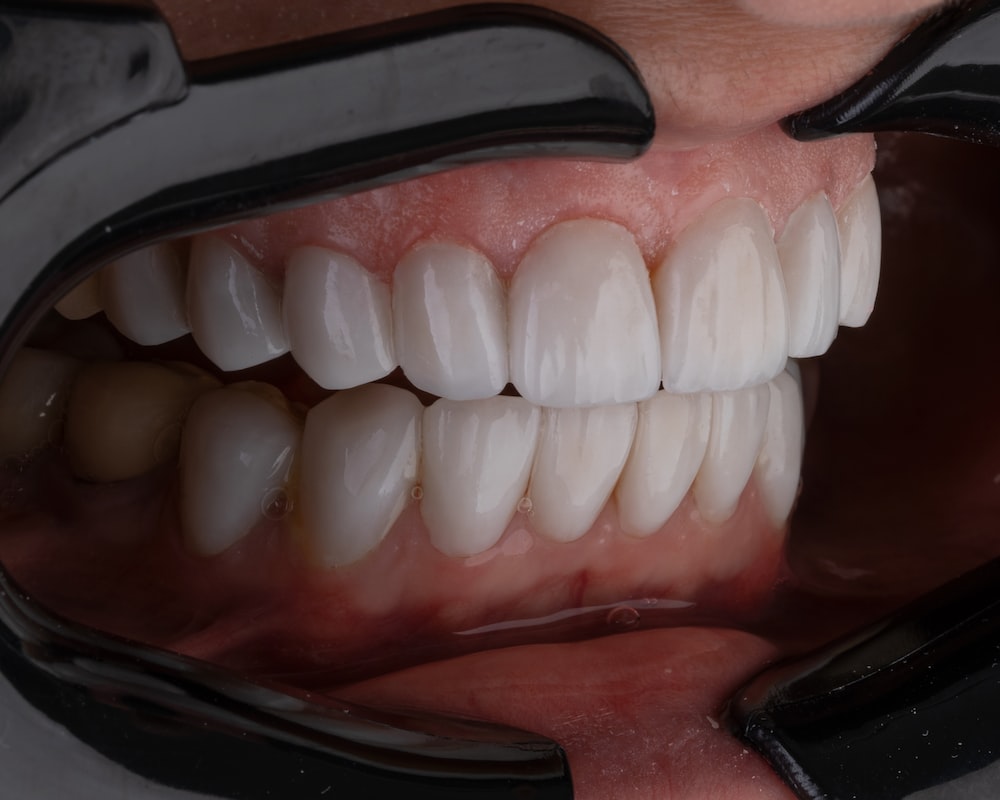In the diverse community of Scarborough, we’re blessed with a rich tapestry of culinary traditions. However, after a teeth whitening procedure, some traditional foods might pose a challenge in maintaining that bright smile. Here’s a guide tailored to address these foods:

Understanding the Post-Whitening Phase
After teeth whitening, the teeth can become temporarily porous, making them more susceptible to staining. The next 48 hours are especially crucial. While we cherish the culinary diversity of Scarborough, some traditional foods and drinks can affect the longevity of your whitening results. Dive deeper into understanding common dental procedures in Scarborough by visiting our common procedures page.
Popular Foods to Be Cautious with:
Common in Canadian Cuisine:
- Coffee: A morning staple for many Canadians, but it can stain teeth.
- Red Wine: Popular across the country and known for its deep pigmentation.
- Blueberries: Often used in pies and jams, these berries have natural pigments.
- Beets: Used in salads and dishes, they have a strong color.
- Maple Syrup: A sweet favorite, but its dark color can be a concern post-whitening.
Common in Polish Cuisine:
- Coffee (Kawa): A strong, aromatic beverage that can stain teeth.
- Dark Teas (Herbata): Brewed with robust leaves, leading to potential staining.
- Red Beets (Buraki): Root vegetables with a deep red hue, often used in soups.
- Red Wine (Czerwone wino): A popular alcoholic beverage with deep pigmentation.
Common in Indian Cuisine:
- Tea (Chai): A milky tea often brewed with spices, which can cause staining.
- Curries: Dishes with vibrant turmeric and other spices that can stain teeth.
- Berries: Used in desserts, these have natural pigments.
- Colored Sodas: Carbonated drinks with artificial coloring.
Common in Chinese Cuisine:
- Soy Sauce: A dark, salty condiment used in many dishes.
- Black Tea: A robust tea with potential staining properties.
- Red Bean Paste: A sweet filling with a deep color.
- Dark Vinegar: Used in various dishes for tanginess.
Common in Italian Cuisine:
- Red Wine: A staple in Italian dining with deep pigmentation.
- Coffee (Caffè): Typically strong and can stain teeth.
- Tomato-based sauces: Vibrant red sauces are used in pasta dishes.
- Balsamic Vinegar: A dark-colored vinegar used in salads and dishes.
Common in Middle Eastern Cuisine:
- Black Tea: Often served with meals and can stain teeth.
- Pomegranate: A fruit with deep red juice.
- Eggplant dishes: Often cooked to a dark hue.
- Coffee (Qahwa): A rich brew that can cause staining.
Common in West Indian Cuisine:
- Roti: A type of flatbread often filled with curried meat or vegetables.
- Mauby: A dark-colored drink made from tree bark, which can stain teeth.
- Sorrel: A deep red drink made from hibiscus petals, often consumed during the holidays.
Common in Jamaican Cuisine:
- Jerk Seasoning: While delicious, the dark sauces and marinades can stain teeth.
- Blue Mountain Coffee: Renowned for its rich flavor, but can cause staining.
- Rice and Peas: The pigeon peas can sometimes have a strong color.
Common in French Cuisine:
- Red Wine: France is famous for its wines, especially the darker varieties.
- Black Coffee (Café Noir): Typically strong and can stain teeth.
- Beetroot Salad: A popular dish with deep-colored beets.
- Berry Tarts: Desserts with natural pigments from berries.
General Aftercare Teeth Whitening Tips:
- Rinse After Eating: After consuming any potentially staining food or drink, rinse your mouth with water.
- Use a Straw: For drinks like coffee or tea, using a straw can minimize contact with teeth.
- Opt for Sensitivity Toothpaste: To combat any sensitivity post-whitening. Learn more about dental care by exploring our FAQ section.
- Maintain Oral Hygiene: Regular brushing and flossing are essential for overall dental health. Discover more tips on our blog.
Embrace the Culture, Protect Your Smile in Scarborough:
In Scarborough, we celebrate our cultural diversity every day, especially through our food. While we encourage everyone to enjoy our city’s rich culinary offerings, being mindful of these aftercare tips can help maintain the brilliance of your whitened teeth. For more insights on teeth whitening, check out our post on the top benefits of professional teeth whitening in Scarborough.
In Conclusion:
Teeth whitening is a commitment to your smile. With the right aftercare tailored to Scarborough’s diverse culinary landscape, you can enjoy the benefits of the treatment while still relishing the flavors of our community. Questions or need a touch-up? Reach out to us anytime!




